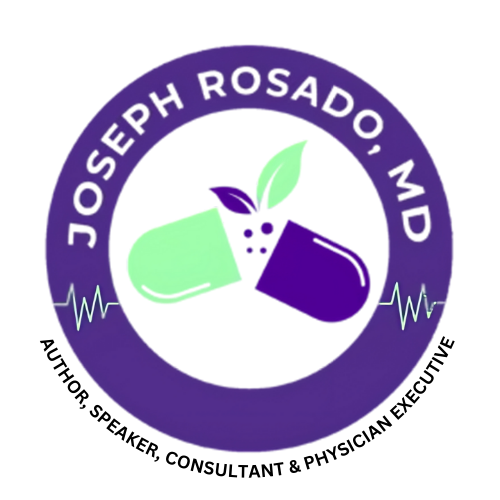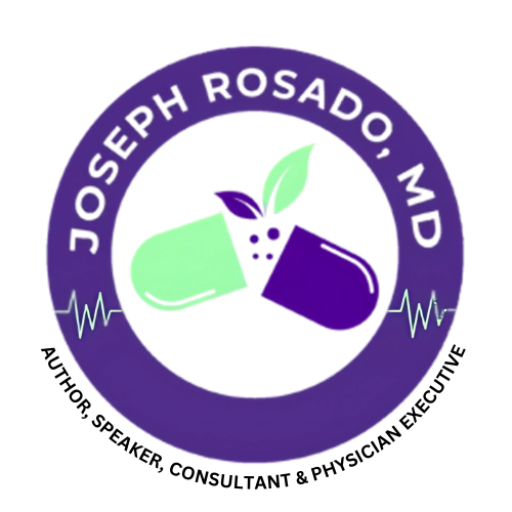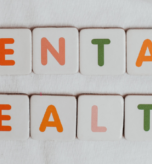Medical Cannabis & Your Doctor: What Patients Need to Know

The growing acceptance of medical cannabis has changed the way we treat chronic pain, anxiety, PTSD, and other life-limiting conditions. But while more patients are exploring cannabis as an option, one question often creates confusion:
Who exactly is allowed to prescribe it—and how do I find a doctor who can?
It’s a fair question, and the answer isn’t as simple as walking into your primary care office and asking for a script. Medical cannabis is still regulated at the state level, which means not every physician is authorized to recommend it, and those who are must meet very specific requirements.
As a licensed provider who’s worked with thousands of patients through cannabis, ketamine, and other integrative therapies, I’ve seen the impact a properly guided cannabis regimen can have. But I’ve also seen how hard it can be for patients to even find the right doctor to start that journey.
Let’s break down who can prescribe medical cannabis, what qualifications they need, and how to spot a truly qualified provider.
How Doctor Authorization for Medical Cannabis Works

Before a doctor can recommend medical cannabis, they must first navigate a system that looks very different from traditional medicine.
Unlike antibiotics or blood pressure medications—which any licensed doctor can prescribe—medical cannabis is governed primarily by state law, not federal law. And because cannabis remains a Schedule I substance at the federal level, doctors don’t “prescribe” it in the traditional sense. Instead, they recommend or certify patients for eligibility under state-run programs.
This key difference matters because it sets strict conditions for who can participate. In most states with medical marijuana laws, only physicians who have completed additional steps—beyond just holding a medical license—are legally allowed to certify patients for medical cannabis.
These steps include:
- Completing state-mandated medical cannabis education courses.
- Registering officially with the state’s Department of Health or equivalent agency.
- Renewing certifications periodically to stay compliant with updated guidelines.
- Following strict documentation and reporting rules to protect both patients and themselves.
In my own practice, I see firsthand how these extra layers of training and oversight protect patients—and ensure cannabis therapy is approached as the serious, medical intervention it truly is.
If a doctor hasn’t taken these steps in your state, they legally cannot recommend cannabis—no matter how supportive they may be personally.
Qualifications Required to Recommend Medical Cannabis

First and foremost, the doctor must hold an active, unrestricted medical license in the state where you’re seeking treatment.
- In most cases, this means being a licensed M.D. (Doctor of Medicine) or D.O. (Doctor of Osteopathy).
- Some states also allow nurse practitioners (NPs) and physician assistants (PAs) to certify patients—but only if they meet extra conditions.
A suspended, expired, or out-of-state license usually disqualifies a provider from recommending cannabis—even if they support it personally.
Almost every state requires providers to complete a specialized training course before they can recommend cannabis.
This training usually covers:
- Cannabis pharmacology (how it interacts with the body)
- Medical uses and potential risks
- Patient assessment protocols
- Proper documentation and legal protections
Courses range from 2 to 6 hours depending on the state and must be updated regularly to reflect new research and law changes.
Once training is complete, providers must register officially with the state’s medical marijuana program or Department of Health.
Their information is often added to a public database, so patients can verify whether their doctor is authorized.
This registration typically requires:
- Proof of education completion
- Proof of active license
- Agreement to follow strict reporting and renewal rules
States don’t just “set and forget” these certifications. Many require providers to:
- Renew their registration every 1–2 years
- Complete refresher education courses
- Submit regular reports on patient certifications (without revealing personal health details)
These measures ensure that cannabis care remains safe, science-based, and patient-centered—not a free-for-all.
Types of Providers Who Can Recommend Medical Cannabis

When most people think about getting a medical cannabis certification, they picture visiting a physician’s office. But depending on where you live, other licensed healthcare professionals may also be able to certify patients—as long as they meet the same training and registration requirements.
Understanding who qualifies matters, because it gives you more options for finding the right provider to guide your care.
Here’s a breakdown:
In nearly every state with a medical cannabis program, M.D.s and D.O.s are the primary providers authorized to recommend cannabis.
They typically specialize in areas like:
- Internal medicine
- Family practice
- Neurology
- Psychiatry
- Oncology
- Pain management
In my practice, I find that physicians with a background in chronic illness, mental health, or palliative care tend to be especially knowledgeable about how cannabis fits into broader treatment plans.
In some states—like New York, Connecticut, and Colorado—nurse practitioners (NPs) and advanced practice registered nurses (APRNs) who have completed additional cannabis-specific training can also recommend medical marijuana.
These providers are especially important in rural or underserved areas, where doctors may be harder to access.
A growing number of states now allow physician assistants to certify patients under physician supervision—or in some cases, independently.
The exact rules vary:
- Some states require PAs to work under a registered physician.
- Others allow full authority after completing their own cannabis education and registration.
In certain situations, states prioritize certifications from specialists, particularly when:
- Treating mental health conditions like PTSD or severe anxiety
- Managing cancer-related symptoms like nausea and pain
- Addressing chronic, treatment-resistant conditions
In these cases, some programs require a specialist’s certification rather than approval from a general practitioner.
Always verify what your state allows—because the list of eligible providers isn’t the same everywhere.
For example, Florida only allows M.D.s and D.O.s to recommend cannabis, while Maryland also permits certain NPs and PAs with the right training.
How to Tell If Your Doctor Is Qualified
When it comes to medical cannabis, not every well-meaning doctor is legally equipped—or properly trained—to guide you.
Finding a qualified provider matters just as much as finding the right treatment.
Here’s how you can confidently verify that your doctor—or a doctor you’re considering—is fully authorized to recommend medical cannabis:
Most states with medical marijuana programs maintain a public database of approved cannabis providers.
Before scheduling your appointment, you can:
- Search your state’s Department of Health or Cannabis Control websites.
- Look for your provider’s name, license status, and active registration.
If they’re not listed, they may not be eligible to issue a recommendation.
It’s okay—and smart—to ask directly:
- “Are you certified with the state’s medical cannabis program?”
- “Have you completed the required cannabis education training?”
- “How often do you work with medical cannabis patients?”
In my practice, I welcome these questions. A qualified doctor should have no hesitation explaining their background in cannabis-based care.
Certification is only the starting point.
A truly supportive provider will also:
- Understand cannabis pharmacology (not just basic facts).
- Know how cannabis interacts with other medications you may be taking.
- Help you personalize your treatment—strain types, dosing methods, potential side effects.
If the doctor seems rushed, vague, or overly sales-driven, consider it a red flag.
In today’s digital world, patient feedback matters.
Look for clinics or providers who have:
- Consistent reviews mentioning compassionate care.
- Clear communication about treatment plans—not just quick certifications.
Resources for education, not just product sales.
Getting your cannabis certification is just the first step. Ongoing support, dose adjustments, and symptom monitoring are critical to success.
Choosing a qualified, patient-centered doctor ensures your journey with medical cannabis starts on the right foundation.


Legal Protections for Doctors and Patients
One of the most common concerns I hear from new patients is this:
“Is it really safe—legally—to use medical cannabis if my doctor recommends it?”
It’s a smart question.
Fortunately, state medical cannabis laws are designed to protect both patients and providers, as long as everyone follows the proper steps.
Here’s how those protections work:
- Certified patients are legally protected from criminal penalties for possessing, using, and purchasing medical cannabis within state limits.
- Your certification is your shield. As long as you stay within program rules (approved products, legal amounts, no unauthorized sharing), you are protected under state law.
- Privacy laws (like HIPAA) also protect your medical cannabis status. Your employer, landlord, or insurer typically cannot access your certification without your consent—unless specific exceptions apply.
In my experience, patients feel a huge sense of relief once they understand they’re on solid legal ground—with a valid recommendation.
- Registered, certified doctors are legally allowed to recommend—not prescribe—cannabis for qualifying patients.
- Doctors cannot be criminally prosecuted or lose their license simply for recommending cannabis appropriately within their state’s framework.
- Providers must document properly—ensuring that the recommendation is based on a legitimate medical evaluation and patient need.
However:
Doctors can still be held accountable for malpractice or negligence, just like with any other treatment.
- Crossing state lines with medical cannabis remains illegal under federal law—even if both states have medical programs.
- Possessing cannabis on federal property (airports, military bases, federal housing) is not protected.
- Driving under the influence is still a serious offense—even with a valid card.
While federal law still technically classifies cannabis as illegal, federal enforcement against individual medical users and doctors has been extremely rare in states with strong, regulated medical programs.
As a physician, I keep a close eye on evolving legal standards to make sure my patients stay protected—and confident.
Frequently Asked Questions (FAQs)
No. Only doctors who are certified and registered with their state’s medical cannabis program can recommend it. Regular physicians without this training cannot legally issue certifications.
No referral is required. You can go directly to a certified cannabis doctor for evaluation—though sharing your records can be helpful for continuity of care.
Look for a licensed M.D., D.O., or in some states, a certified nurse practitioner or physician assistant who has specific training in medical cannabis.
Check your state’s Department of Health website for a list of certified providers, or ask your doctor directly about their credentials and cannabis-specific training.
Because cannabis is federally illegal, doctors don’t “prescribe” it. Instead, they recommend or certify you for legal use under state law.
Some are, but many are not. Always verify that the provider is licensed in your state and registered with the state’s cannabis program before moving forward.
Typically, no. Since cannabis isn’t FDA-approved, most insurance plans don’t cover the cost of visits, products, or follow-up care.
In many states, telehealth evaluations are allowed, especially for renewals. But your first visit may still need to be in person, depending on your state’s rules.
Yes—if they’re certified. Many psychiatrists, neurologists, and pain management specialists are approved to recommend cannabis, especially for complex cases.
Most states require renewal every 6 to 12 months. Your doctor may also schedule follow-ups to adjust your dosage or treatment plan based on your progress.
Here’s the final closing section, keeping perfectly in tune with the patient-centered, hopeful, and professional voice you want—just like your references:
Looking Ahead: Why Choosing the Right Cannabis Doctor Matters

As a physician who’s helped countless patients integrate medical cannabis into their healing journey, I can tell you this:
The doctor you choose makes all the difference.
Medical cannabis isn’t about picking up a card and guessing your way through treatment. It’s about building a partnership—with a provider who listens, understands your full health picture, and tailors your care based on science, safety, and compassion.
Whether you’re navigating chronic pain, anxiety, PTSD, or another qualifying condition, you deserve a doctor who:
- Knows the medicine inside and out
- Stays current with evolving laws and best practices
- Sees you as a whole person—not just a diagnosis
In my practice, I view medical cannabis as one tool in a larger toolkit of healing—not a last resort, but a real, science-backed option for those ready to take control of their health.
Finding the right doctor isn’t just about getting a certificate—it’s about building a foundation for real, lasting relief.




